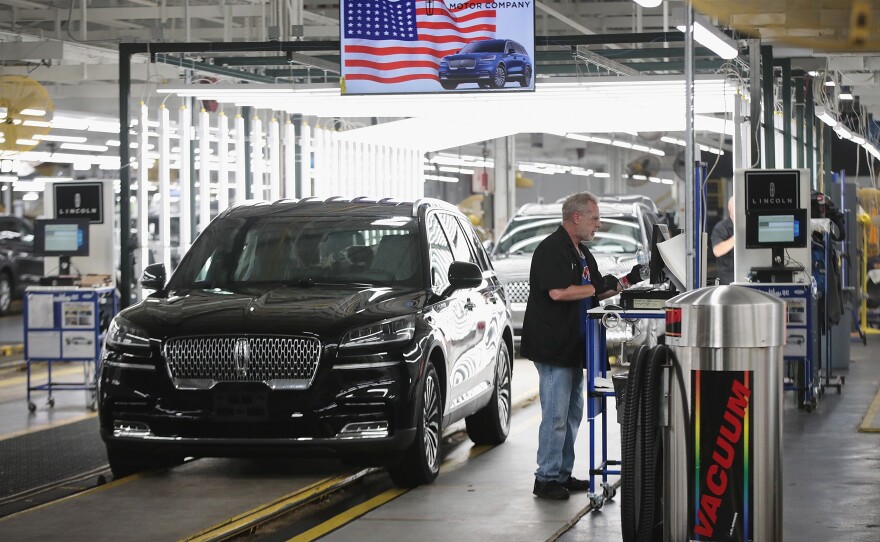The state of California has formed a deal with four automakers to produce fuel-efficient cars. The agreement is different from plans the Trump administration is expected to put in place that would relax national emissions standards.
Four of the world's largest automakers, including Ford, BMW, Honda and Volkswagen, signed the deal with the California Air Resources Board.
In a conference call with reporters, California Gov. Gavin Newsom spoke of the need to reduce greenhouse gas emissions. "Clean air emissions standards ... are perhaps the most significant thing this state can do, and this nation can do, to advance those goals," Newsom said. "The Trump administration is hellbent on rolling them back. They are in complete denialism about climate change."
Later this summer, the Trump administration is expected to announce a regulatory rollback, eliminating a rule implemented by the Obama administration requiring passenger vehicles to have an average mileage of about 51 miles per gallon by 2025. The administration is also expected to try to take away California's right to set more stringent rules under the Clean Air Act.
In a statement given to NPR, Michael Abboud, spokesman for the Environmental Protection Agency, said, "The Trump Administration is pursuing one national standard and certainty for the entire auto market that will provide safe, affordable vehicles for consumers while also improving environmental outcomes."
He called California's announcement of a deal with automakers "a PR stunt that does nothing to further the one national standard that will provide certainty and relief for American consumers."
Under the California agreement, the four automakers have agreed to reach a standard of about 50 miles per gallon by 2026. The deal also allows for the companies to receive credits toward meeting their annual targets by adopting climate-friendly technologies.
Dan Beckner, director of the Safe Climate Campaign at the Center for Auto Safety, a Washington-based nonprofit group, says the deal between California and automakers should be more stringent. "If these standards allow all of these loopholes, it isn't clear that California will create the tough standards that we need to protect the climate and Californians' health," Beckner told NPR.
Beckner also says the emissions standards put in place under the Obama administration, which are slightly more restrictive than the California agreement, should be maintained. "The standards the Trump administration is trying to roll back are the biggest single step that any nation has taken to tackle global warming. They would save 6 billion tons of carbon dioxide, if not weakened. So this is an enormous threat to the planet if the president's rollback goes forward," Beckner said.
The Trump administration's pending rollback, California's deal and the potential for this all to go to court are creating regulatory uncertainty for automakers.
Last month, NPR's Camila Domonoske reported that while automakers were critical of the tightening of emissions standards under the Obama administration, the battle between states and the Trump administration could make manufacturing more difficult.
"If you know what the regulations are going to be in five years, you can make decisions about what kinds of cars you want to bring to market," Domonoske reported. "So even some carmakers who, again, were kind of skeptical about the original rules, are really adamant now that they definitely don't want this feud, this back-and-forth, to continue."
Copyright 2019 NPR. To see more, visit https://www.npr.org.







